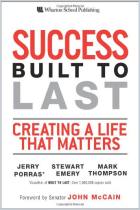According to author and education consultant Sir Ken Robinson, today’s educational systems promote only certain types of learning and recognize only certain types of intelligence and creativity. Yet people are happiest when they follow their talents and do what they love. Robinson, writing with co-author Lou Aronica, describes this avenue to fulfillment as “the Element,” the intersection of ability and passion. He uses stories of artists, scientists, athletes and musicians to support his theory. While Robinson makes a strong case for finding your Element, he doesn’t tell you how to get there. Since he relies on case histories of the famous, some readers might feel more distanced than motivated. Nonetheless, getAbstract recommends this thoughtful self-help book, which challenges traditional views of intelligence and creativity.
“The Element”
Gillian had trouble sitting still in class, staying focused or following directions. Her school’s administrators felt her behavior was disruptive and thought she might do better in a “special” school. This was in the 1930s, before Attention Deficit Disorder became a common diagnosis. Gillian’s mother took her to a psychologist, who conducted a series of tests. In a departure from common practice, he recommended that Gillian attend dance school. This is how Gillian described the experience. “I walked into this room, and it was full of people like me: people who couldn’t sit still. People who had to move to think.” This is the story of Gillian Lynne, the renowned dancer who choreographed the Broadway musical productions of Cats and The Phantom of the Opera for Andrew Lloyd Webber.
When Gillian discovered dance, she entered the Element, the intersection of interest and ability. Finding your Element is essential to your happiness, fulfillment and success. Yet many people go through their entire lives without ever having this experience. Three obstacles limit them: First, most people underestimate their own capabilities. Second, ...
Sir Ken Robinson, the author of Out of Our Minds: Learning to be Creative, is a speaker and consultant on education and creativity. Lou Aronica co-wrote The Culture Code.




















Comment on this summary or Start Discussion